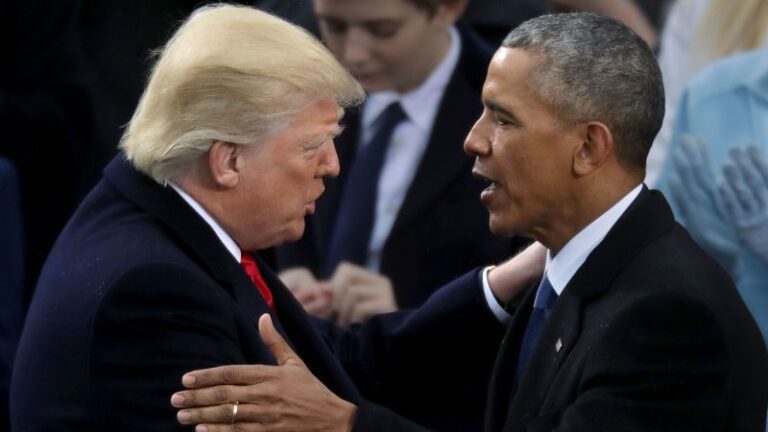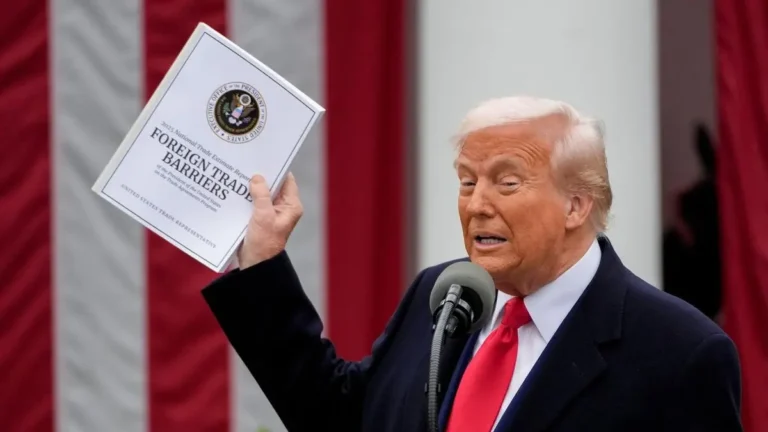Trump Defends 104% Tariff on Chinese EVs: ‘I Don’t Want Them Spending Money on Their Military’

April 8, 2025
Former President Donald Trump has reiterated his support for imposing a 104% tariff on electric vehicles imported from China, claiming it’s necessary to stop Beijing from using American dollars to fund its growing military.
In a recent campaign event in Michigan, Trump sharply criticized what he described as China’s unfair trade practices and aggressive geopolitical ambitions. “I don’t want them spending our money on building up their military,” Trump said. “Every car they sell here helps fuel their expansion. We’re not going to let that happen.”
The comments come as part of Trump’s 2024 campaign trail, where economic nationalism and trade protectionism have again become central themes. His proposed tariff, specifically targeting Chinese electric vehicles (EVs), would drastically raise the current import cost, effectively pricing many of them out of the U.S. market.
A Renewed Trade Battle?
Trump’s stance could signal a revival of the trade war tactics seen during his first term, where steep tariffs were imposed on hundreds of billions in Chinese goods. His proposed 104% levy on Chinese EVs is more aggressive than previous actions and has sparked concerns among economists and international trade analysts.
Critics argue that such a move could escalate tensions between Washington and Beijing, disrupt global supply chains, and raise consumer prices in the U.S. EV market. However, supporters say it’s a necessary measure to protect American manufacturing and curb China’s growing dominance in critical industries.
China Responds
China’s Ministry of Commerce condemned Trump’s remarks, stating that trade should not be weaponized for political gain. “We hope the United States will refrain from taking unilateral actions that violate WTO rules and harm global trade order,” a spokesperson said on Monday.
Despite the criticism, Trump remains defiant. “We want those jobs in Michigan, Ohio, and Pennsylvania—not in Shanghai,” he told the crowd. “They can make their EVs, but they’re not going to dump them on us.”
A Strategy for 2024—and Beyond
While President Joe Biden has also taken a hard line on China, especially regarding technology and defense, Trump’s plan goes even further. His strategy, he claims, is not only about economic protection but also national security.
“Every dollar they earn here is a bullet they can shoot over there,” Trump said, pointing toward China’s rising military spending and regional assertiveness in the South China Sea and Taiwan Strait.
Trump has also hinted at broader tariffs on other Chinese goods if elected in 2024, reigniting fears of a full-scale trade war that could impact global markets.
Conclusion
Trump’s declaration of a 104% tariff on Chinese EVs marks a bold escalation in U.S.-China economic tensions. By tying trade policy directly to national security, he’s reshaping the narrative around globalization and foreign competition—setting the stage for a heated debate in the 2024 election and beyond.
This bold stance from Trump isn’t just about economics—it reflects a broader geopolitical concern that’s gaining momentum globally. As tensions rise between the U.S. and China, particularly in sectors like electric vehicles and AI, the lines between trade and national security continue to blur. Many experts argue that tariffs are becoming tools of strategic deterrence rather than just economic policy. To understand the growing intersection of trade and defense, The New York Times explores how tariffs are reshaping U.S.-China relations, while Brookings Institution offers deeper insights into how trade policy is now being shaped by security priorities. These shifts signal a complex future where economic decisions carry deep diplomatic consequences.





